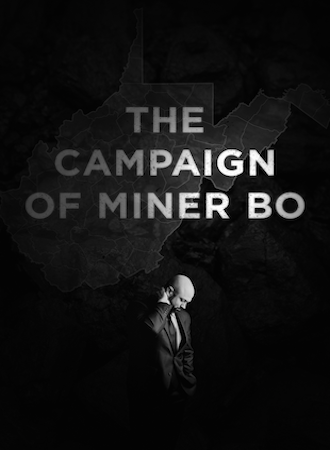
The Campaign of Miner Bo 2019
Distributed by Alexander Street Press, 350 7th Ave/Ste 1100, New York, NY 10001
Produced by Todd Drezner
Directed by Todd Drezner
Streaming, 75 mins
College - General Adult
Politics; Sociology; Working Class
Date Entered: 11/17/2020
Reviewed by William Blick, Electronic Resources Librarian, Queensborough Community CollegeThe Campaign of Miner Bo gives viewers a chance to see a slice of Americana, which many are unfamiliar with: That is the struggles and culture of the Mining Industry in West Virginia. The film unabashedly demonstrates a man who is trying to validate his life and existence in an increasingly harsh and indifferent world, and his plight, which translates into the trials and tribulations of day-to day survival. It depicts Bo as an earnest, hardworking individual dealing with difficult realities about the future of an industry, and socio-economic and political issues. He is forthcoming about the stigma of coal miners being ignorant, and people thinking he is out of his realm. It then becomes a mission to prove them wrong.
There is also discussion of the increasing disenchantment of the United States as a whole with the Coal industry. The film shows up closely how intricately the Coal Industry is to Americans in rural areas and how they depend on the industry for sustenance.
A key component of this film is of Hillary Clinton’s remarks about being an opponent of coal mining saying “we are going to put a lot of coal miners and coal companies out of business”, but masquerading as a “friend” to the workers, who would be put out of work by backing away from coal. The issues associated with coal as fuel are not addressed. The film rather focuses on the struggles of an individual who is representative of a forgotten member of the working class in America. This is both problematic and ambivalent in the film.
Miner Bo Copely sought the seat of Republican office for Senator of West Virginia, in the 2016 election. The film is not particularly filled with long polemics. It focuses, surprisingly on Bo’s community and culture. The film serves as an objective demonstration of an individual who is vying to make his family, his life, and those who are affiliated with him, who have suffered as well, relevant in an increasingly diminishing industry. It is noted that Bo’s appeal is that he is not threatening, or pejorative in his campaign, but honest and forthcoming.
It is difficult to say whether the film is sympathetic or politicizing the effects of backing away from coal and coal miners. Is Bo heroic? The film demonstrates a bold assertion on the part of an underrepresented population. However, much to the film’s credit, it focuses on an increasingly complex issues and pulls no punches in dealing with the complexities of this issue. It praises Bo’s bold assertion of the validity of his life and work. It is a definite underdog story. The focus of the film is less about politics then it is about the character of Bo.
Whether you are sympathetic, apathetic, or an opponent to Republicanism, or coal as fuel, appear secondary concerns to the fact that an “Everyman” is trying to use political influence to defend his community. The film may even generate opposing viewpoints, depending on your political affiliations. The film is relatively engaging. It is largely based around imagery of West Virginia and personal interviews. Technically, it as proficient as the average documentary. It is worth a look if you want to see a underrepresented voice fight for the voice of his people in the face of the bureaucratic and gargantuan entity of that of the American government.
I think it would be useful in the classroom to generate discussion about a rural American worker struggling for survival and making his or her voice heard. It is essential from an educational standpoint, to demonstrate opposing viewpoints and to generate equal representations of both political sides, which have become extremely polarized.